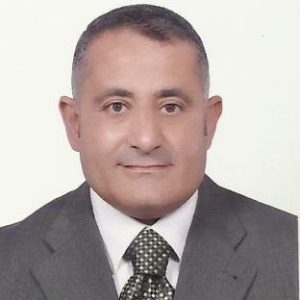Bus procurement: interview with Mohsen Sabra, CEO of Mwasalat Misr (Egypt)
BUS PROCUREMENT, AN OPERATION WITHIN A VISION – DEVELOPMENT OF A PRIVATE COMPANY IN CAIRO – INTERVIEW WITH MOHSEN SABRA, CEO OF MWASALAT MISR (EGYPT)
This interview was conducted on February 11, 2019, by Younes Aggoun, CODATU cooperation manager in Egypt, within the framework of the “Community of Practices for Sustainable Urban Transport in the Mediterranean” of the CMI. This community of practice – led by CODATU – aims to promote collaborative learning about sustainable urban mobility in the countries of the Middle East and North Africa.
 Eng. Mohsen Sabra: Previously Business Development Manager at Engineering Automotive Co. SMG Group, Mohsen Sabra is CEO and responsible for the development of Mwasalt Misr in Greater Cairo. He worked in several positions at the Egyptian Air Force in maintenance, R&D; and business departments before joining Egypt Air as a senior engineer. He is graduated from the Military Technical College and he holds an MBA from the Arab Academy for Science Technology and Maritime Transport
Eng. Mohsen Sabra: Previously Business Development Manager at Engineering Automotive Co. SMG Group, Mohsen Sabra is CEO and responsible for the development of Mwasalt Misr in Greater Cairo. He worked in several positions at the Egyptian Air Force in maintenance, R&D; and business departments before joining Egypt Air as a senior engineer. He is graduated from the Military Technical College and he holds an MBA from the Arab Academy for Science Technology and Maritime Transport
CODATU: To begin with, could you introduce us Mwasalt Misr and her positioning in the urban bus transport landscape in Greater Cairo?
Mohsen Sabra: In 2011, the company existed under the name of The Egyptian Company for Transport (الشركة المصرية المتطورة للنقل). It started with the buyout of a first private company that operates inside Cairo named Cairo Company for collective Transport. Then, with a second acquisition of another company, Mwasalt Misr (Heeba for Collective Transport at that time) could also operate in Greater Cairo (GC) region between new towns and Cairo City.
Today, there are 17 private companies – which 12 remains in activity- under the administrative supervision of the CTA (Cairo Transport Authority) in GC. In order to operate bus lines in the region, all the companies sign contracts with CTA, but also with NUCA (New Urban Communities Authority) for new towns territories.
CODATU: What was the fleet management and acquisition strategy of your company?
Mohsen Sabra: When we acquired the companies mentioned above, we kept the existing bus fleet, but we also had a vision and a desire to modernize the vehicles. The founder, Mr. Taha Hisham, a former IT engineer, wanted a transition from “traditional” buses to more modern and comfortable equipment. Thus, we launched a “smart minibus” project in 2012, which aimed to put into service minibuses equipped with passenger information equipment, ticketing system, Wi-Fi, auto tracking … etc.
In 2014, we carried out a second acquisition of 125 buses and minibuses, 26 of which were equipped with air conditioning: it was the first time on the local market.
Two years later, we launched our own international tender with specifications drafted internally and which resulted in the selection of two manufacturers. 236 different buses were planned, but after the devaluation of the Egyptian currency in 2016, the operation became more complicated. The first manufacturer who imported Swedish chassis could no longer support the new exchange rates, and we mutually agreed on the termination of the contract. The second manufacturer that produced the buses locally was not impacted in the same way and we were able to negotiate an increase of 8% to maintain the contract. Today, we always aim for 236 buses, however, we are calibrating this operation over a longer period until the end of 2019.
CODATU: Before this last operation where you have written your own specifications, on what basis did you proceed for the previous operations?
Mohsen Sabra: Two main factors determine our choice: first, the requirements identified by the public authority. In Cairo, the CTA elaborates and transmits us operating conditions such as the type of fuel, the number of seats … etc. The NUCA had requested buses running on natural gas in its tender, which we had specified in our specifications. However, the high costs did not allow us to get them, so we decided with the NUCA to replace them with Euro 3 buses.
The second important factor for us is the after-sales service. We try to contract with local experimented manufacturers to avoid difficulties that face other companies.
CODATU: Regarding this point of maintenance, did you face some difficulties after your acquisitions?
Mohsen Sabra: The first operation of buses equipped with air conditioning allowed us to identify some dysfunctions. The engines – with a 121-horsepower allowed an air conditioning of 18000 kcal / h – which was acceptable for private companies or school buses, but insufficient for the public transport whose stops are every 800 meters. The repeated opening / closing of the doors made the air conditioning inefficient and energy consuming. Thus, we have revised the characteristics upwards for our next acquisitions (164 horsepower and an air conditioning at 122 000 kcal / h) hoping to achieve better performance.
For spare parts, we have required a 10-year availability guarantee from our suppliers. Furthermore, we perform maintenance management internally, but we plan to delegate maintenance to the vendors themselves in the medium term.
Finally, when the fleet will reach about 500 vehicles, we plan to create a separate company for maintenance. This has been the case for the digital equipment installed in our buses: a specialized company is currently operational, and it is a good indicator of performance for our work.
